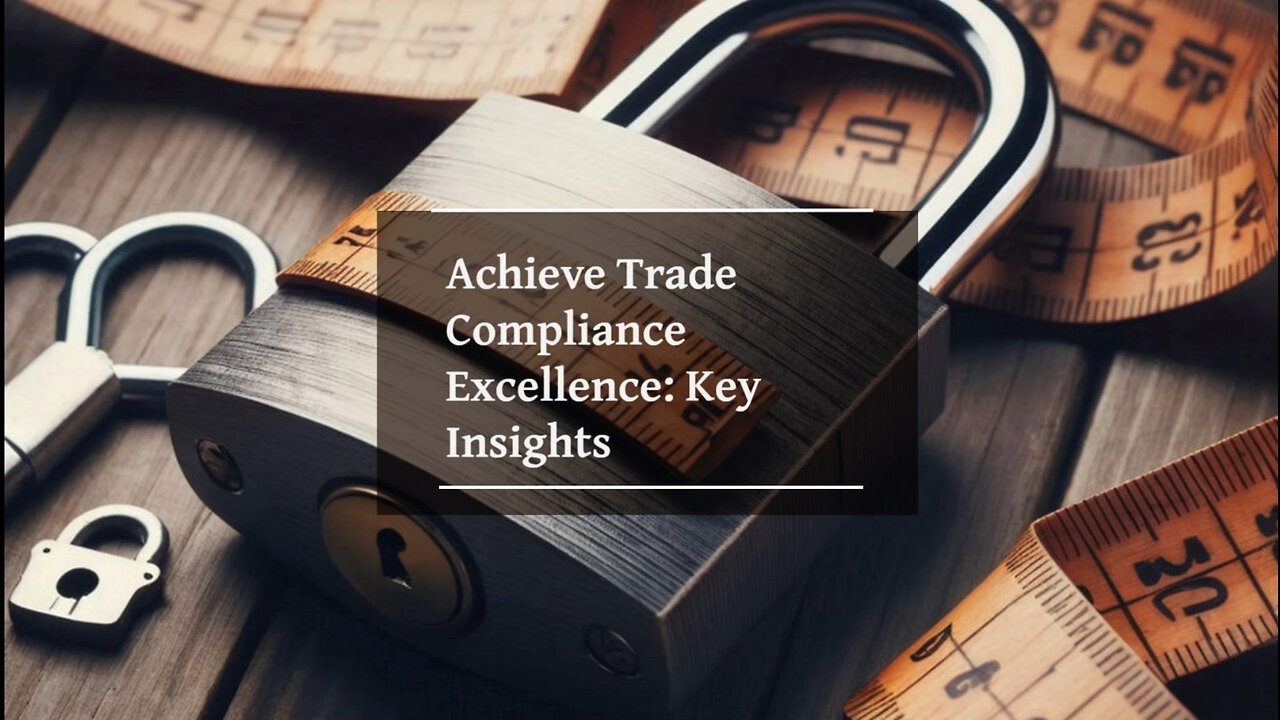Premium Only Content

Unlocking Success: Mastering Trade Compliance for Seamless International Trade
ISF Filer || isf@isffiler.com || 858-280-9374 || www.isffiler.com
In conclusion, achieving trade compliance excellence in customs brokerage requires a multi-faceted approach. It starts with understanding the importance of customs bonds and ensuring their proper utilization to provide financial guarantees to customs authorities. Staying abreast of global trade regulations and working with experienced customs brokers is essential to navigate complex trade environments effectively. The implementation of comprehensive internal compliance programs, including regular audits and proper documentation practices, demonstrates due diligence and reduces the risk of non-compliance. Understanding and managing the Importer Security Filing process, as well as being prepared for customs inspections, further contribute to trade compliance excellence. By prioritizing trade compliance, importers can ensure smooth and efficient international trade operations while avoiding penalties and delays.
#usimportbond #isfcustomsbroker #uscustomsclearing #isfentry
Video Disclaimer Here: This video is intended for educational purposes and has no affiliation with US government entities.
00:24 - Importance of Customs Bonds: Customs bonds act as a financial guarantee for importers, ensuring that customs duties and fees are paid, thereby fostering trust between importers and customs authorities.
00:53 - Understanding Trade Regulations: Staying updated on global trade regulations is essential for compliance. Customs brokers provide expertise in navigating the complexities of customs procedures, tariff classifications, and documentation requirements.
01:23 - Managing Importer Security Filing (ISF): Compliance with ISF requirements is critical for ocean cargo entering the U.S. This involves submitting specific shipment information to enhance supply chain security and mitigate risks.
01:54 - Implementing Internal Compliance Programs: Establishing robust internal compliance measures, such as regular audits and record-keeping, helps demonstrate due diligence and prepares importers for customs inspections, reducing the risk of non-compliance.
-
 13:35
13:35
Russell Brand
15 hours agoPFIZER JUST MADE THEIR NEXT MOVE AND EXPERTS ARE TERRIFIED
138K245 -
 1:15:57
1:15:57
Victor Davis Hanson Show
1 day agoOver Here, Over There: the Russo-Japanese War and Trumpian Peace Policy
65.6K35 -
 23:55
23:55
MYLUNCHBREAK CHANNEL PAGE
1 day agoThe Nephilim Are Here
92.8K84 -
 1:00:58
1:00:58
Break The Cycle w/ Joshua Smith
12 hours ago $1.72 earnedBreak The Cycle Ep. 247: Funny Guys w/ Robbie "The Fire" Bernstein
28.7K1 -
 41:26
41:26
TheTapeLibrary
1 day ago $9.94 earnedThe Disturbing Horrors of the Trans-Allegheny Lunatic Asylum
60.2K6 -
 10:07
10:07
Tundra Tactical
13 hours ago $6.72 earnedTRUMP'S HUGE GUN RIGHTS MOVE!
41.2K9 -
 1:53:23
1:53:23
Mally_Mouse
13 hours agoSaturday Shenanigans!! - Crowd Control - Content Warning
31K1 -
 17:24
17:24
Exploring With Nug
19 hours ago $3.67 earnedScuba Diving on Underwater Cars Searching For Missing Man!
41.7K1 -
 3:06:12
3:06:12
Jewels Jones Live ®
2 days agoWASTE, FRAUD & ABUSE | A Political Rendezvous - Ep. 110
94.5K30 -
 25:11
25:11
BlackDiamondGunsandGear
15 hours agoAnderson AR-15 / Is Budget Building Trash?
41K8